
 |
Teaching and research around the chair of Foundations of Intercultural Philosophy |
Institutional FrameworkThe chair of Foundations of Intercultural Philosophy was founded by the Trust Fund of the Erasmus University Rotterdam (EUR) in 1990 when its first incumbent, Heinz Kimmerle, retired from his chair of continental philosophy and the philosophy of difference. After five years, Prof. Kimmerle retired from the Chair of Foundations of Intercultural Philosophy, to be succeeded by Wim van Binsbergen in 1998. Wim van Binsbergen held his inaugural lecture in January, 1999. Prior to this appointment, Wim van Binsbergen -- who in the 1970s-1980s established himself as a specialist on religion in Africa (historic forms, Christianity and Islam -- had been Professor of Ethnicity and Ideology in Transformation Processes in the Third World at the Free University, Amsterdam (1990-1998), as well as a long-standing senior member of the African Studies Centre, Leiden (1976- ); he had also served in professorial positions at the universities of Manchester, Leiden, Berlin and Durban-Westville. Wim van Binsbergen's appointment in the chair of the Foundations of Intercultural Philosophy is financed by the African Studies Centre, while his research, conferences, and PhD projects are largely subsidised by the Trust Fund of the EUR, with minor contributions from the Philosophical Faculty, EUR. The chair is monitored by a Curatorium consisting of Mr. R.A. Felix on behalf of the Trust Fund EUR, Dr. H. Oosterling on behalf of the Philosophical Faculty EUR, and Dr. G. Hesseling on behalf of the African Studies Centre, Leiden; the Curatorium meets once a year. |
|||||||||||||||
Current researchAround the chair of Foundations of Intercultural Philosophy, a number of research projects are currently undertaken. Much of the research is embedded in the overall research programme of the Department of the Philosophy of Man and Culture, Philosophical Faculty, Erasmus University Rotterdam (programme leader: Prof. Jos de Mul). Within that overall programme, the chair on intercultural philosophy plays a major role specifically in the programme module on Intercultural Mediation. The organisation of this programme module is flexible, and of the researchers involved (de Mul, Loose, Oosterling, Tiemersma, and van Binsbergen, in alphabetical order) only van Binsbergen is directly connected with the chair on intercultural philosophy. Here three major projects stand out: |
click here for a preliminary description of recently completed and current research within the part module of intercultural mediation | ||||||||||||||
| 1. Research programme
on Intercultural conflict: Around the chair of
intercultural philosophy, EUR, |
|||||||||||||||
| 2. The origins and conditions of philosophical thought. Recently a new project was started that merges Wim van Binsbergen's empirical experience as a cultural anthropologist with the Ancient Near East and Africa with his philosophical work of the last decade. It consists of the exploration of the socio-historical, intercultural, and media conditions under which philosophical thought (with its very specific language patterns) has arisen. This research (now crystallizing into two volumes scheduled for publication in 2005-2006) seeks to trace, through a combination of philosophical conceptualization and historical and comparative empirical research, very early and near-universal forms of human thought, seeking to answer Max Black’s question as to the existence of universal structures of symbolism. The focus will be on the emergence, 5000 years ago in the Ancient Near East, of fundamental forms of mediation that have since – especially through their potential for what might be called ‘routinized transcendentalism’ – had a profound impact on the human world (writing, the state, organized religion, and science). A complementary line of research will be devoted to the philosophy of myth, where Cassirer, Kolakowski and Deleuze & Guattari offer major philosophical inspiration to explore the wealth of mythical material from Africa (with special emphasis on leopard-related themes) and to detect, once more, underlying general patterns of thought there that highlight both continuity and specificity of particular periods and regions. In connection with this project an international conference will be organized, to which alongside Van Binsbergen several other members of the group will contribute. | Click here for explorations of forms of knowledge that are largely independent from, and that largely pre-date, the North Atlantic culture, society and science -- in a bid to assess both the difference and the convergence of the varieties of human thought, conceptualisation, symbolism and world-making | ||||||||||||||
| 3. Book project: The mediatic turn:
Aspects of the ontology of mediation, eds Wim van
Binsbergen & |
|||||||||||||||
| 4. In addition to these more collectively embedded projects, Wim van Binsbergen's philosophical research has recently concentrated on | |||||||||||||||
| Recent
research projects successfully completed In recent years, more or less comprehensive research projects were conducted and concluded by publication (in the form of books and articles) on: |
|||||||||||||||
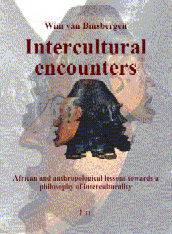 |
|||||||||||||||
virtuality, religion, medieval Islamic philosophy, spirituality, the Southern African philosophy of Ubuntu, and the analysis of globalisation, ethnicity, commodification, consumption. |
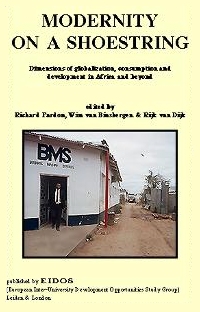 |
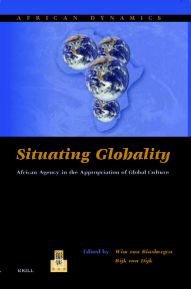 |
 |
||||||||||||
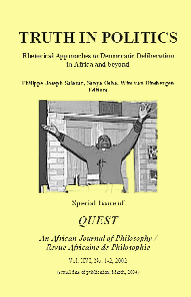 |
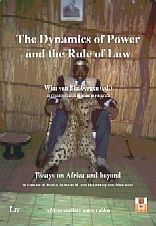 |
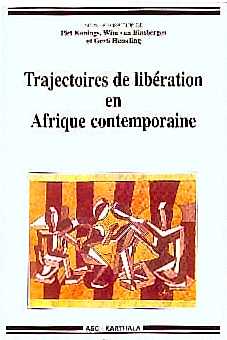 |
|||||||||||||
| From
2002 onwards, a detailed and up-to-date chronological
record of ongoing research, presentations and
publications is provided on the webpage Topicalities
which is part of the present Shikanda domain. For Wim van Binsbergen's publications see his list of publications; more detailed information is available in the various
subject-based websites which make up the present Shikanda
domain. The texts of most of
these publications have now been included in the present Shikanda domain: core sections of Wim van Binsbergen's book Intercultural Encounters (2003) and of most of his other recent books,
as well as papers on Guattari, Derrida, Kant, Mudimbe, Sandra Harding, a
short book on virtuality, etc. See
the internal search facility at the bottom of this page. This allows the visitor to enter specific
authors, concepts and topics, and trace their
ramifications through Wim van Binsbergen's recent work. |
|||||||||||||||
Current and imminent publication projectsThe lines of research indicated above came largely together in the voluminous book Intercultural encounters: African and anthropological lessons towards a philosophy of interculturality (610 pp; Berlin & Muenster: LIT); this was published end of 2003, and forms a central reference point in Wim van Binsbergen's philosophical teaching and research. With Peter Geschiere a collective volume was completed on Commodities and Identities: 'Social life of things' revisited, which seeks to take up the inspiration of Arjun Appadurai's work; this book has now been accepted for publication by LIT Verlag, Berlin/Muenster, and will appear in 2005. Similarly, a long-standing publication project with Martin Doornbos, Identity and power in Africa: Continuing dialogues, is scheduled to go to the publishers in 2005. Nearing completion is now a book on Ancient models of thought, tracing earliest recorded forms of human symbolism and conceptual thought throught remote prehistory. Since the mid-1990s, and largely as a result of his comparative long-range work on the intercontinental connections of African geomancies (a wide-spread form of divination, pervading many aspects of African life, and of pre-modern and early-modern life in Europe), a constant line of research in Wim van Binsbergen's work has sought to assess the question (highly relevant from a point of view of intercultural philosophy) as to the antecedents of European philosophy, religion and science outside Europe. On this last point, his work has contributed to current debates on Black Athena and Afrocentricity. His successful and rapidly sold out collection Black Athena Ten Years Later, which appeared as a special issue of the journal TALANTA, is now being reprinted in expanded form as Black Athena Alive (LIT publishing house). Extensive work on the African philosopher Valentin Mudimbe is now promising to yield the core of another book, Palavers on intercultural philosophy, and work on philosophy and spirituality yet another one (Explorations in intercultural spirituality). |

|
||||||||||||||
Seminars and conferencesA major resource for the research around the chair of foundations of Intercultural Philosophy is the monthly PhD seminar, which after a slack period was reinstated as from April, 2005. Moreover, Wim van Binsbergen co-ordinated the Research Group of the Dutch-Flemish Association for Intercultural Philosophy (1998-2000), in his capacity of chair. With the fiancial assistance of the Trustfund of the Erasmus University Rotterdam, a Colloquium on Intercultural Philosophy was held in May, 2000, as well as a number of significant international conferences:
|
 |
||||||||||||||
| Papers on
Intercultural Philosophy (PIP) the
Fall of 2004 saw the announcement (click
here for a fuller description (PDF)) of a new series
of books, reports and papers around the Erasmus
University Rotterdam chair of Intercultural Philosophy.
These publications will appear both in electronic form
and as printed hard copy. The series will be published in
conjunction with Quest:
An African Journal of Philosophy/Revue Africaine de
Philosophie. Editorial work on the first titles
is in progress – they will appear in the course of
2005, which is also when the new PIP website will be
established |
|||||||||||||||
Quest: An African Journal of Philosophy / Revue Africaine de PhilosophieThe 2004 colloquium just mentioned marked the publication of the first volume of that journal (volume XVI) to appear under the Editorship of Wim van Binsbergen, who took over that position from founder-Editor Pieter Boele van Hensbroek -- both Editors having taught at the University of Zambia, where this journal was initiated by Bwalya and Boele van Hensbroek in the late 1980s. The Editorship entails the intellectual and organisational running of this unique journal of African philosophy and of philosophy in Africa. The Editor is greatly assisted in this task by the Editorial Team, comprising Professor Sanya Osha (Ibadan, Nigeria) and Mrs Kirsten Seifikar M.A. (Rotterdam); by the Advisory Editorial Board (comprising big names in African philosophy: Paulin Hountondji, Kwasi Wiredu, Lansana Keita, as well as the Dutch emeritus Lolle Nauta); and by a network of mainly African senior philosophers serving the journal's peer review structure as referees. The African Studies Centre, Leiden, has extended an agreement of hospitality to Quest as from 2004. Within five years, the journal is to find an institutional base in Africa, where its intellectual base has always been anyway. |
 |
||||||||||||||
Current Ph.D. projectsCurrent PhD projects around the chair of intercultural philosophy are the following: |
|||||||||||||||
|
|||||||||||||||
|
|||||||||||||||
| Completed PhD
projects In May, 2000, Gerda Sengers defended her Ph.D. thesis on Women and demons (a study of zar and Qur'anic healing among women in Cairo, Egypt, today) as produced in the context of the chair on Intercultural philosophy. Gerda Sengers' thesis appeared as a fully-fledged commercial book on the day of the thesis defense, in Dutch; the Netherlands Research Foundation (NWO) subsequently granted a Euro €10,000 subsidy to have the text translated into English, and has subsequently (November 2002) appeared with the prominent international publishing house Brill (Leiden). On 12 January 2001, before the University of Amsterdam, Ferdinand de Jong defended his Ph.D. thesis Modern secrets: The power of locality in Casamance, Senegal, on secrecy, globalisation and the construction of locality, with special reference to Southern Senegal today (guest principal supervisor Wim van Binsbergen; co-supervisor Bonno Thoden van Velzen). On 6th September 2001, Thera
Rasing,defended her Ph.D. thesis on female puberty
initiation, Catholicism and globalisation in urban
Zambia, under the title: The bush burned, the stones remain; of this thesis a commercial book edition in
English was available from the very day of its defense (LIT
publishing house). Present
Ph.D. candidates include Julie Duran-Ndaya, with a study
of the articulation of identity in the context of women's
groups belonging to the Congolese movement of Le
Combat spirituel (supervisors Wim van Binsbergen and
Wouter van Beek); and Fred Woudhuizen, with a study of
the ethnicity of the Sea Peoples in the Ancient Near
East. Several new Ph.D. projects are currently being
initiated, especially by PhD students from Africa and
Asia, and will be formally announced here before long. |
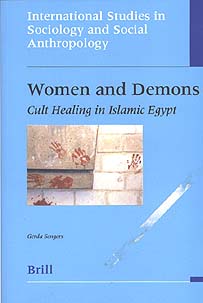 |
 |
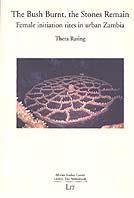 |
||||||||||||
M.A. projectsHalf a dozen students have written Master's or Doctorandus' theses in intercultural philosophy under Wim van Binsbergen's supervision (Louise Muller, Piotrek Swiatkowski, Stephanus Djunatan, Laura Kelly, Kirsten Seifikar, Carolien Ceton), and others are in the process of being written right now. These projects will be advertised here before long. |
|||||||||||||||
Scheduled teachingIn the years 1998-2003 Wim van Binsbergen has taught a post-graduate scheduled course 'Some foundations of intercultural philosophy', which until 2003 was an integral part of the English-language stream offered by the Philosophical Faculty, Erasmus University Rotterdam, and was then made an optional course. Due to major changes in the degree structure at the EUR Philosophical Faculty, from the academic year 2004-2005 Wim van Binsbergen's course is no longer offered in English but in Dutch, and no longer as a post-graduate course but as a Bachelor III course (FW-IF3002); click here for the course description. click here for the special website serving the 2004-2005 Bachelor III course. [ add link ] |
[ add image and link ] | ||||||||||||||
Internal Search facility for this site and Wim van Binsbergen's other websites in the Shikanda domain